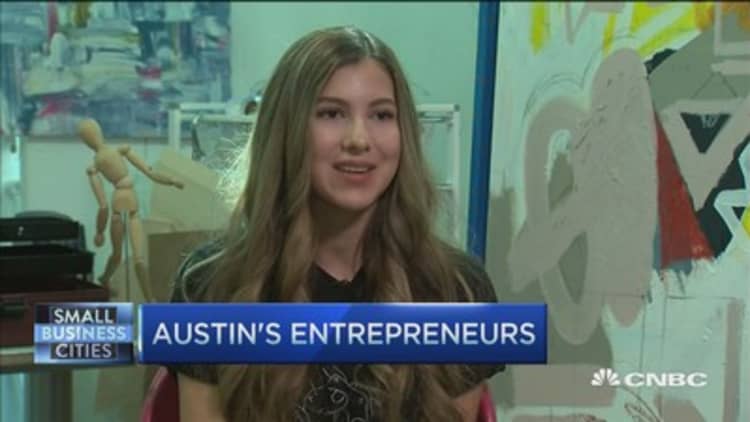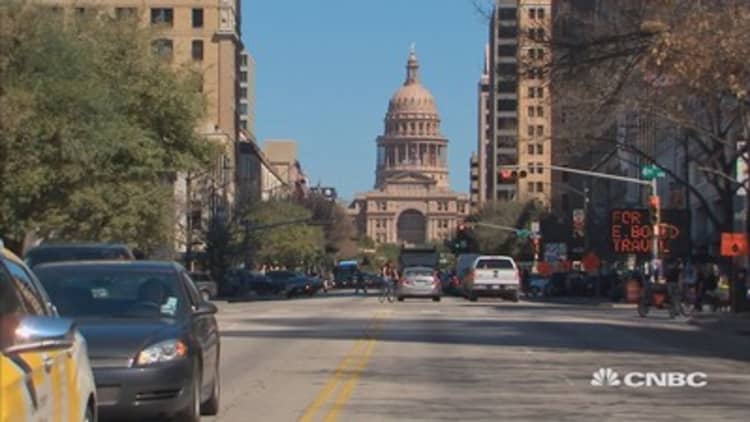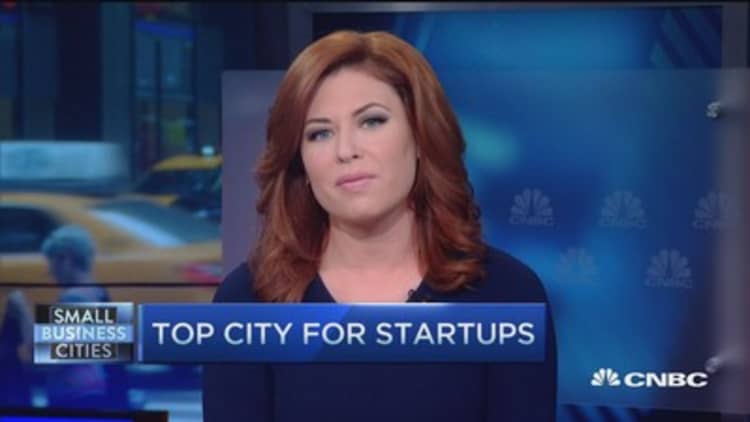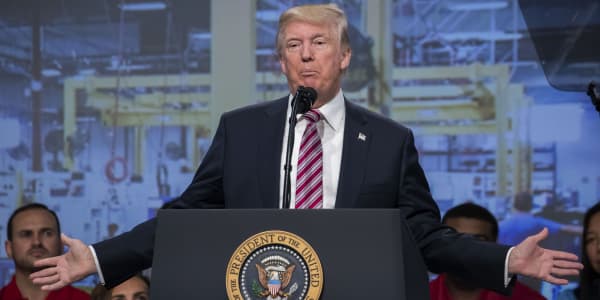


There's plenty to be impressed with upon meeting Austin-based fashion designer Isabella Rose Taylor. She began writing and painting as young as age 4. She launched her own eponymous clothing line at age 10, then graduated high school just a year later. And at age 13, the young prodigy hosted a show at New York Fashion Week, landing her designs in Nordstrom.
But one of her more recent accolades was being awarded 2015's Emerging Woman-Owned Business of the Year by Texas Gov. Greg Abbott. Not bad for a 14-year-old.
"There's so much local support here in Austin," Taylor points out. She gained traction, thanks in part to Austin-based computer giant Dell, who through its Women's Entrepreneur Network sponsored her New York Fashion Week show. "I feel so lucky to have grown up here and launched my business here," she said.
She's also proved it's possible to launch a viable business while still in your teens and make a name for yourself in fashion without uprooting to New York or Los Angeles.
It's not surprising that entrepreneurs like Taylor are taking Austin by storm. According to the Kaufmann Foundation Metropolitan Area Rankings for Startup Activity study, the greater Austin area is breeding 550 start-ups a month in a range of industries.
Nearly 80 percent of these entrepreneurs were categorized as opportunity-share, meaning they're seizing market opportunities rather than being forced into launching ventures as a necessity. The metro also increased its start-up density to 180.8 per 100,000 residents in 2015. It characterizes start-ups as those businesses one year old or less with at least one employee besides the owner.
The overall state tax environment is business-friendly, jumping from 20th to 14th in the category in this year's CNBC's America's Top States for Business study. Texas itself ranks in the top 10 states for Business Tax Climates, according to the Tax Foundation's annual rankings.
Zero personal income tax rates bring the state's ranking to sixth nationwide—an important factor, as many small businesses pay at the individual level. Gross receipts taxes are collected from some businesses. The fact that the state has a zero corporate rate is another reason for its high rating.
Read More5 worst cities for small-business owners
According to the Austin Chamber of Commerce, the city's public-private economic development partnership Opportunity Austin (OA) has added 264,400 jobs with a payroll increase of $13.9 billion since 2003. In 2014 alone, 63 local companies announced expansions, and venture capital funding hit a 13-year record high of more than $1 billion.
The burgeoning tech scene
Austin has also become a viable tech hub, serving as an alternative to coastal hot spots. One of the city's biggest tech success stories is Spiceworks, which started small in 2006, attempting to become the "iTunes for IT" but has far surpassed that, morphing into a professional network for IT professionals, installed in every country of the world. Today, 4 million IT pros use the network each month, including major brands like Microsoft, HP and Dell.
The company also raised $57 million in its last round of funding in 2014 for a total of $111 million—but founder Jay Hallberg said they have no plans of relocating to Silicon Valley anytime soon. In fact, Spiceworks recently lured away former Twitter executive Amir Movafaghi, who was instrumental in taking the tech company public in 2013 to become its new CFO.
"I think if you are in California, there's always the next big thing right next door, and while that is exciting, it can sometimes be a bit of a distraction," Hallberg said. "We find here we can focus a bit more on the task at hand."
Greater Austin is home to 5,100 tech companies with 115,000 Central Texas residents, with high-tech firms making up 26 percent of the total regional payroll, according to OA.
"A broad range of companies are coming to Austin in record numbers for several reasons. Our region offers a great quality of life, a low cost of living and a growing reputation as a center for technological innovation," said Michele Skelding, senior vice president, global technology and innovation at the Austin Chamber of Commerce. "The entrepreneur ecosystem continues to fuel job growth and strengthen our regional economy."
Another big part of what is driving Austin's growth is incubating and accelerating new talent. Capital Factory is one of the city's big co-working spaces, with an accelerator program and investment fund rolled into one. About 35,000 people pass through the facility each year—from entrepreneurs to mentors and venture capitalists. Over the past 18 months, the Capital Factory fund has invested $3.2 million into start-ups that come through its accelerator.
"By nature we have a culture that is very innovative as a city. We have university that has a lot of great talent. We've been blessed with some extraordinary successes that have created an ecosystem where angel investors are willing to invest in early-stage ventures," said Mellie Price, managing director of Capital Factory.
Read MoreDurham, NC, sparks a Tobacco Road business revival
What's more, the same innovative culture that allowed Austin to win the name "Live Music Capital" of the country is also what's enabling its start-up scene, Price said.
"At its heart, Austin has always been a creative community," Price added. "Where else can you eat breakfast tacos?"





